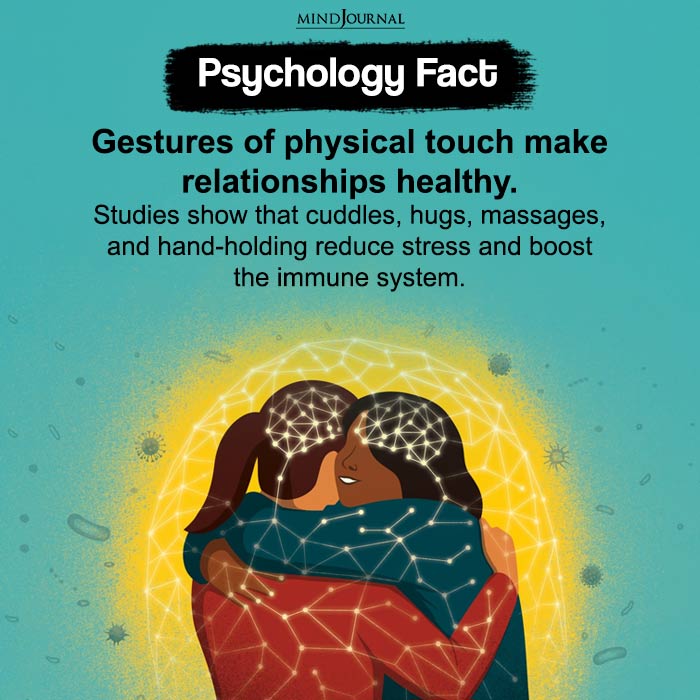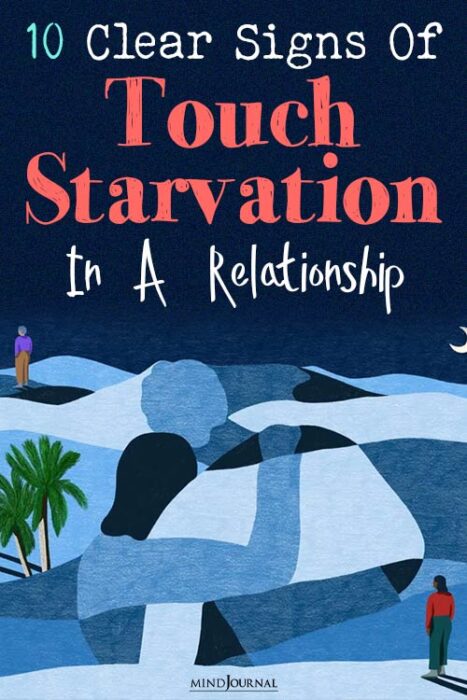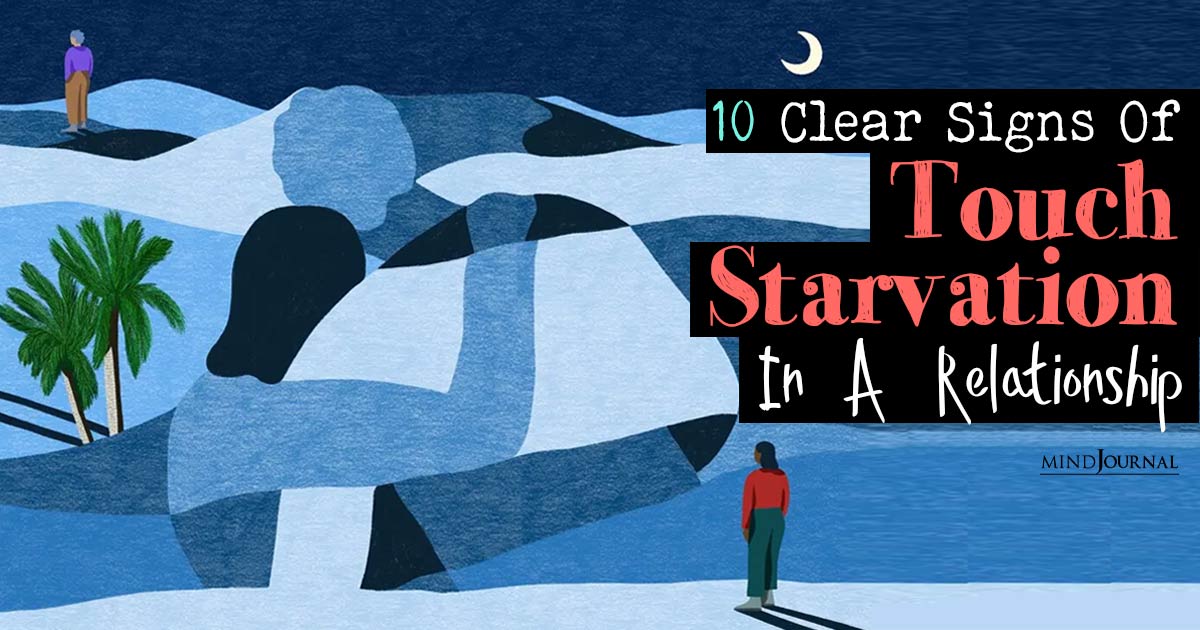From warm hugs to gentle handshakes, touch has the incredible power to connect us and make us feel alive. But what happens when we don’t get enough of it? That’s where touch starvation, also known as affection deprivation or skin hunger, comes into play.
It might sound surprising, but touch starvation is a real thing, and it can have a significant impact on our overall well-being.
Craving Affection? The Impact Of Going Months Without Physical Touch
You might be surprised to learn just how not being touched for months can have some unexpected effects on your mind and body.
So, picture this: physical intimacy, the simple act of hugging, holding hands, or snuggling, releases a magical hormone called oxytocin, also known as the “love hormone” or “cuddle chemical.”
Related: How A Lack of Gentle Platonic Touch in Men’s Life Is Destroying Them

When oxytocin is released, it creates a warm, fuzzy feeling of bonding and connection. It’s like a little love potion that our bodies produce naturally!
But here’s the catch: if we go for months without experiencing that delightful touch, our oxytocin levels can plummet.
That’s when things start to get a bit crazy, and not in a good way! You might find yourself feeling increasingly stressed, anxious, and even a bit moody. Yep, being touch-deprived can seriously mess with your emotions and overall mental state.
Related: 10 Things To Remember When Your Partner’s Love Language Is ‘Touch’
7 touch starvation symptoms you may experience if you’re touch deprived:
- Muscle Tension: Feeling tense and stiff.
- Fatigue: Low energy levels and constant tiredness.
- Headaches: Frequent headaches or migraines.
- Sleep Disturbances: Difficulty falling or staying asleep.
- Increased Stress and Anxiety: Feeling overwhelmed and anxious.
- Weakened Immune System: Frequently getting sick.
- Reduced Libido: Decline in sexual desire and intimacy.

If you’re noticing these signs, it’s essential to address your touch needs and seek ways to feel more connected and comforted. Don’t hesitate and reach out to your loved ones for support!
But, What About Psychological Signs Of Touch Starvation In A Relationship?
You know, that feeling when you’re not getting enough physical affection, and it starts affecting your relationship and well-being. Here are the telltale signs of touch starvation:
1. Clinginess Alert!
If your partner starts getting clingy, it could mean they miss affection and just want reassurance that you’re there for them.
2. “We need to talk about this”
Regularly bringing up a lack of sex and physical affection could be their way of saying, “Hey, I need more love and attention!”
3. Commitment Cravings
When they keep begging for commitment or marriage, it might be their way of seeking that emotional connection they’re missing.
4. Compliment Fishing
If they’re constantly seeking compliments, they might be feeling insecure and needing some love and reassurance.
5. Romantic Hints
Dropping hints about doing romantic things? They’re probably hoping those special moments will fill the affection gap.
6. Sex Slump
A lack of physical intimacy might be leaving them feeling rejected and unloved. Couples’ therapy could help reignite the spark!
7. Sadness Strikes
A seemingly generalized depression could be a result of not getting enough affection and emotional support.
8. Silent Struggles
If they’re not opening up about personal problems, it could be a sign that they feel unheard and unimportant.
9. Nagging Mode On
Constant nagging might be their way of asking you not to neglect them emotionally.
10. Extra Effort
When they go above and beyond to please you, it’s their way of showing how much they crave that affectionate connection.
How To Deal With Touch Starvation?
Feeling touch starved? No worries, there are simple ways to cope and get that affection back into your life!

When you’re on your own:
- Give yourself a massage – it’s relaxing and helps you feel good.
- Think of happy memories with loved ones – it’ll remind you of that emotional closeness.
- Cuddle with a pet – they’re great for warmth and connection.
- Get moving – exercise releases happy hormones!
- Chat with a friend – hearing their voice can make you feel less alone.
With others:
- Show positive touch to loved ones – a hug or holding hands can work wonders.
- Stay close – being near them, even without talking, helps you feel connected.
- Keep in touch – video chats bridge the distance and keep relationships strong.
- Support others – notice if they’re touch-starved too and be there for them.
- Set a future date – plan something to look forward to with your loved ones.
Take it step by step, and you’ll feel the warmth of connection coming back into your life! You got this!
Related: 10 Benefits Of Holding Hands With Someone You Love, According To Science
Even simple acts of friendly touch, like high-fives or hugs with friends, can work wonders for your well-being. So, reach out (literally!) to the people around you. Take a step towards being happy, and emotionally fulfilled! Share your thoughts below!
Frequently Asked Questions (FAQs)
What does touch starvation feel like?
Feeling touch-starved can lead to emotional emptiness, increased anxiety, clinginess, or a sense of isolation.
How to deal with touch starvation?
Combat touch starvation by seeking physical contact through hugs, massage, or spending time with loved ones.
What is touch starvation?
Touch starvation, also known as skin hunger or affection deprivation, occurs when a person lacks enough physical contact with others, impacting their emotional well-being.









Leave a Reply
You must be logged in to post a comment.